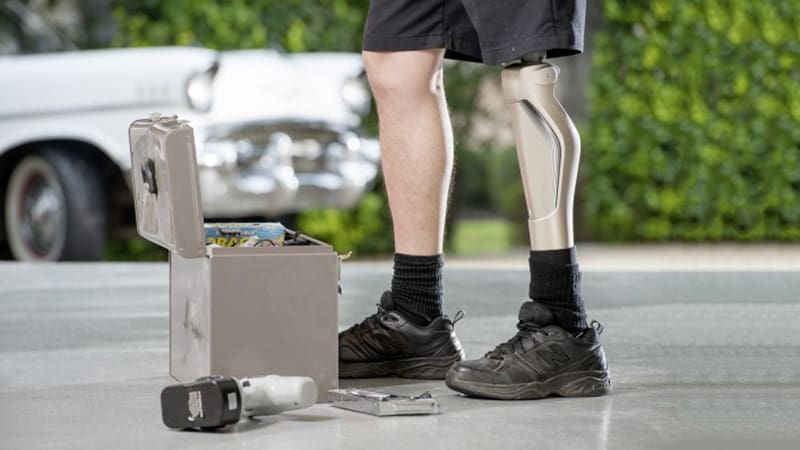New £700k fund to help patients across Wales receive vital prosthetic knees

Health Minister Vaughan Gething has announced a new £700k fund to provide specialist Microprocessor Controlled Prosthetic Knees (MPK) to eligible patients in Wales, providing enhanced mobility and safer walking.
Prosthetics are a type of assistive technology that help people who have lost part, or all, of a limb to regain movement and function.
MPKs improve patients’ long-term health, independent living and quality of life by giving the best mobility and function possible. Currently, the MPKs are available to veterans who live in Wales who were injured in service.
This category of prosthetic knee is used by people who have lost a leg at, or above, the knee. The assistive technology uses computer technology in order to provide enhanced stability and safer walking.
This makes it easier for the end-user to navigate slopes, stairs and uneven terrain with greater stability.
Ian Massey, Clinical Lead Prosthetist at the Artificial Limb and Appliance Centre, Rookwood Hospital, said: “We are absolutely delighted that Wales will be able to supply Microprocessor Prosthetic Knees to its civilian amputee population. The provision of these devices will significantly enhance the quality of life of many of the patients who attend the specialist prosthetic service centres in Wales.
“We look forward to introducing and developing this service using these technologically advanced products in our centres.”
The fund will be available from 1st April to those eligible via the NHS Prosthetic and Amputee Rehabilitation services, which are delivered in-house by three specialist Artificial Limb and Appliance Centres (ALACs) located in Cardiff, Swansea and Wrexham. Those eligible can discuss this at their next assessment with their prosthetists.
Minister for Health and Social Service, Vaughan Gething, commented: “The funding announced today will make a huge difference to those who are eligible for the Microprocessor Controlled Prosthetic Knees (MPK). This type of knee improves the quality of life for the individual and their families, enabling them to live as independently as possible. I am delighted that from 1st April all health boards in Wales will be able to access the fund.”
The new £700k fund for prosthetic knees follows an important assistive technology commission, launched last year, to explore how assistive technology services could be better commissioned to provide more person-centred care.
This commission aims to encourage local authority leaders to procure social care services in a different way so they lead the process and technology manufacturers can respond and invest appropriately.

